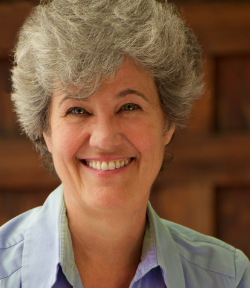
Photo credit: Diane Alancraig Photography
With the madness going on in our federal government, it is hard to know as a private citizen what to do or where to turn. Do we watch every twist and contortion of the infinitesimally slow train wreck happening in Washington DC? Or should we ignore it and go about our business?
At this moment in time, amidst the upheaval and confusion, I think it is incumbent upon each of us to speak up, act up, and participate in the governance of our country, our city, and our workplace. Whatever your political bent, the time to act is now. If we do not speak up through the channels available to us, we are simply complicit in the demise of our society. Grassroots organizing—canvassing for a political candidate, standing on the street corner holding a sign, contacting your representatives in Congress—are all avenues available to us every day.
What the musicians of the Baltimore Symphony Orchestra accomplished in securing $3.2 million in funding from the Maryland General Assembly is nothing short of remarkable. Their grassroots organizing—by musician, by citizen, by patron, by donor—resulted in a major shift of awareness and support in the city of Baltimore and in surrounding communities. By first organizing themselves, then reaching out to the closest circle of supporters and so on, they circumvented the seemingly monolithic obstacle of their management and reached all the way to the Governor of the State of Maryland. They have given us a living example of what can be accomplished through initiative and daily effort. Their activism in this fight has been extraordinary, and this kind of activism is available to us all.
Just as it is the responsibility of every citizen of the United States to participate in our democracy, it is the responsibility of every musician to be an active participant in the governance of their orchestra. The lines of communication require constant maintenance and attention at every level—musician to musician and musician to management. In the words of Eleanor Roosevelt, “Where, after all, do universal human rights begin? In small places, close to home—so close and so small that they cannot be seen on any maps of the world … Such are the places where every man, woman and child seeks equal justice, equal opportunity, equal dignity without discrimination. Unless these rights have meaning there, they have little meaning anywhere.” Even with a ratified contract in Baltimore, the work continues. There are relationships to be amended and repaired, and contract improvements to be secured. The struggle for fair pay and a representative voice never stops. Unless we as individuals take responsibility for exercising our representative voice, justice will elude us and there will be no democracy.
Idle complacency will be the demise of any organization.
As of publication time, ICSOM will have launched, or be launching imminently, our email campaign in support of S.2254, the Butch Lewis Act. This bill would provide low-interest government loans to multi-employer pension plans in critical and declining status, so the plans can avoid benefit reductions. As the bill stands now, our American Federation of Musicians and Employers’ Pension Fund (AFM-EPF), now critical and declining, would be eligible to apply. It is imperative that every one of us—every ICSOM musician, every musician in our fellow Player Conferences (ROPA, TMA, and RMA), and every AFM member—respond to this call. I would ask that even those musicians who are not participants in the AFM-EPF contact their Senators and express their support for this bill. Millions of Americans across the country are enrolled in multi-employer plans that are in, or near, critical and declining status. We will have an economic crisis of epidemic proportions if the federal government sits on its hands and does nothing to address this situation. We must speak up in support of S.2254 for our own pension as well as that of others.
Moreover, these multi-employer pension funds are union plans, negotiated by private-sector unions and employers. Resistance to this bill is surely informed, at least in part, by ideological opposition to unions themselves. The failure of these plans would be just one more setback for the union movement. We who believe in that movement should feel impelled to support this bill for that reason alone.
Since its founding in 1962, ICSOM has been an advocate for orchestral musicians—with our managements, within the AFM, and on the national stage. But like any democratic organization, its strength and efficacy are dependent on its membership. We need every voice to take an active role in order for ICSOM to be heard, just as our federal government needs your participation to govern for the good and welfare of all our citizens.





